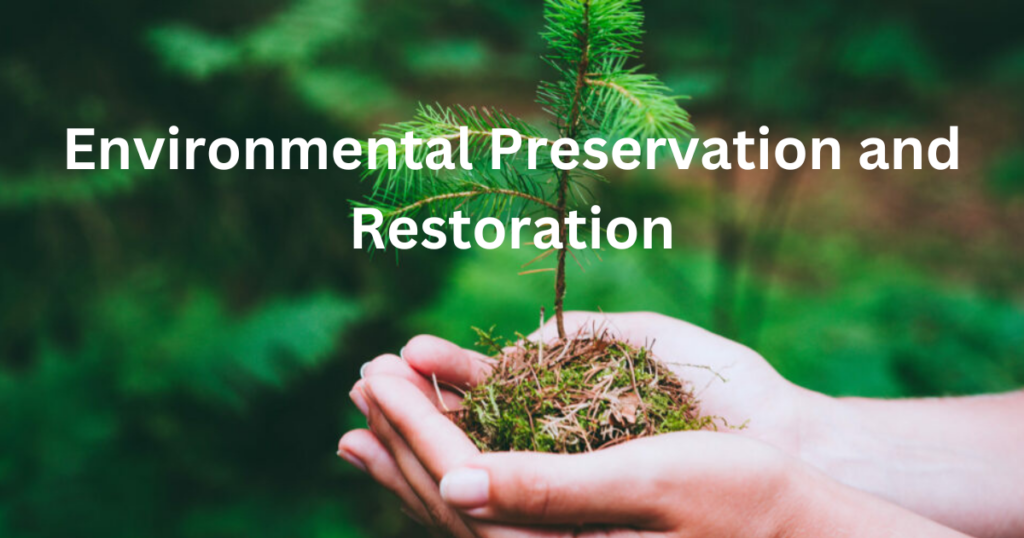Sustainable development
Sustainable development has become an essential concept in our modern world, focusing on meeting present needs without compromising the ability of future generations to meet their own needs. It encompasses economic, social, and environmental aspects, aiming to create a harmonious balance that ensures the well-being of both humanity and the planet. In this article, we’ll delve into the significant benefits that sustainable development brings to various aspects of our lives. Sustainable development seeks to create a world where economic growth, social progress, and environmental protection coexist in harmony. By adopting sustainable practices, we ensure that our actions today do not compromise the resources and opportunities available to future generations.
Table of Contents
Economic Prosperity through Sustainability
Green Business Practices
Incorporating sustainability into business operations not only benefits the environment but also leads to increased efficiency and reduced costs. Companies that prioritize resource efficiency, use of renewable energy, and responsible supply chain management often experience long-term economic gains.
Job Creation and Economic Growth
Sustainable development initiatives drive job creation, especially in sectors such as renewable energy, eco-tourism, and green technologies. This not only reduces unemployment but also fosters economic growth through innovative and forward-looking industries.
Social Equity and Improved Quality of Life
Access to Education and Healthcare
Eco-friendly development emphasizes equal access to education and healthcare, promoting social inclusivity. This helps bridge the gap between different socioeconomic groups, contributing to a more equitable and just society.
Reduced Inequalities
By addressing disparities in income, gender, and ethnicity, Eco-friendly development works towards reducing inequalities. This creates a more stable and harmonious social fabric.
Environmental Preservation and Restoration

Conservation of Ecosystems
Preserving natural ecosystems through sustainable practices safeguards biodiversity and prevents the loss of endangered species. It also ensures the availability of essential resources for future generations.
Mitigation of Climate Change
Eco-friendly development aims to reduce greenhouse gas emissions through the adoption of cleaner energy sources and more efficient technologies. This contributes to global efforts to combat climate change and its adverse effects.
Efficient Resource Management
Renewable Energy Adoption
The transition to renewable energy sources, such as solar and wind power, decreases reliance on finite fossil fuels, leading to a more sustainable energy future. This shift also reduces air pollution and promotes cleaner air quality.
Waste Reduction and Recycling
Eco-friendly development encourages waste reduction and promotes recycling. By minimizing waste generation and reusing materials, we lessen the burden on landfills and minimize the negative impact on the environment.
Resilience and Disaster Mitigation
Building Stronger Communities
Sustainable development enhances community resilience by promoting disaster-resistant infrastructure and fostering community engagement. This prepares communities to withstand and recover from natural disasters and other shocks.
Adapting to Changing Circumstances
The flexibility inherent in sustainable development allows communities to adapt to changing conditions, whether they are social, economic, or environmental. This adaptability ensures long-term survival and growth.
Global Collaboration for a Better Future

International Partnerships
Sustainable development encourages collaboration between nations to address global challenges. By sharing knowledge, technology, and resources, countries can collectively work towards a more sustainable and secure world.
Addressing Cross-border Challenges
Challenges such as transboundary pollution and resource depletion require international cooperation. Sustainable development provides a framework for resolving these challenges and promoting mutual understanding.
Conclusion
In conclusion, the benefits of sustainable development are manifold. From economic prosperity and social equity to environmental preservation and global collaboration, it offers a comprehensive approach to ensuring a better future for humanity and the planet. By embracing sustainable practices, we can pave the way for a harmonious and thriving world.
FAQs
Q1: Advantages and Disadvantages of Sustainable Development ?
Sustainable development, a concept aimed at balancing economic, social, and environmental considerations, has gained widespread attention as a means to secure a better future for both current and future generations. However, like any approach, it comes with its own set of advantages and disadvantages. In this article, we will explore both sides of the coin when it comes to sustainable development.
Q2: What is sustainable development?
The principle of achieving current necessities while safeguarding the potential of forthcoming generations to fulfill their requirements underlies the idea of sustainable progress. It encompasses economic, social, and environmental dimensions.
Q3: What role does Eco-friendly development play in addressing climate change?
Eco-friendly development contributes to climate change mitigation by promoting the use of renewable energy sources and reducing greenhouse gas emissions.
Q4: How can individuals contribute to sustainable development?
Individuals can contribute by adopting energy-efficient practices, reducing waste, supporting sustainable products, and advocating for policies that promote sustainability.
Q5: What is the significance of global collaboration in sustainable development?
Global collaboration is essential to tackle cross-border challenges, share knowledge and resources, and work collectively towards a more sustainable and secure future.



